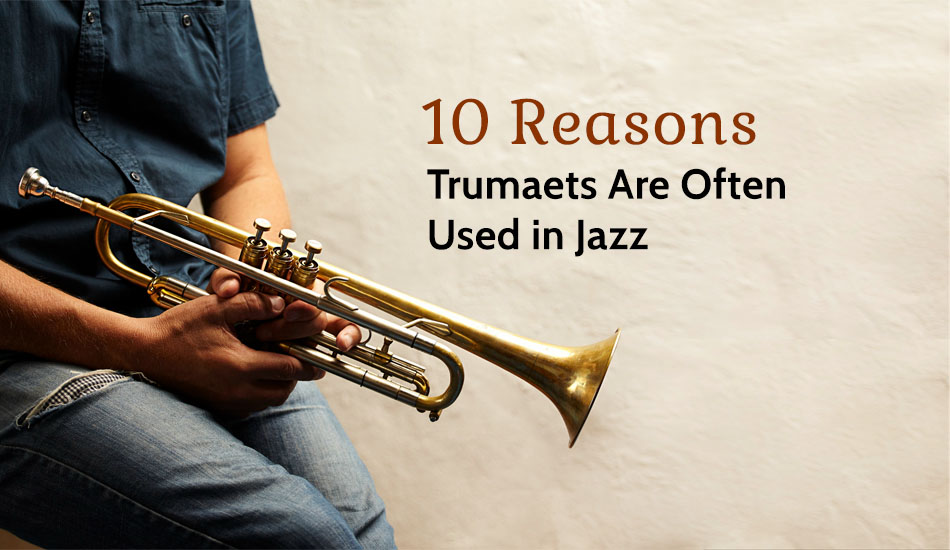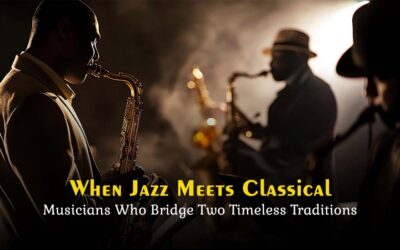Jazz trumpets are a famous instrument often used in jazz music. Because of their unique timbre, cultural background, and unprecedented functionality, they bear a special responsibility to define the image of such music.
From the loud and powerful tones of Louis Armstrong to the innovative sounds of Miles Davis, the trumpet today is an important instrument for jazz musicians worldwide. Here in this blog, we will go down to the ten top points that highlight the significance of trumpets in jazz.
1. Bright and Bold Sound
The jazz trumpet is one of the brightest and most unambiguous instruments. They are colorful and loud enough to cut through the texture of a Jazz group or as a backing note, depending on how the player articulates them. It is one of the dynamics that make trumpets to be selected as the leading instruments in jazz music songs.
2. Historical Significance in Jazz
Jazz history would not be complete without the mention of the trumpet. Already in the 20s of the twentieth century, the trumpet became the typical instrument in jazz due to such avant-garde musicians as Armstrong.
In the following decades, others – Dizzy Gillespie, Chet Baker, and Freddie Hubbard – took the trumpet to new widths and depths, illustrating its capabilities in bebop, cool, and fusion jazz. These artists are eternalized in some of what we regard as the best jazz songs, most of them having trumpet solos that are still patriotic to this day.
3. Exceptional Versatility
There are very few instruments that are as useful as the trumpet. Each of the jazz trumpets can readily glide seamlessly from swing to Dixieland and from bebop to modal or even free-form jazz.
It also applies to conglomerate relationships with other genres of television production. Anglo saxophone can also be incorporated into blues, funk, and contemporary pop music, proving its accuracy as a rounder instrument.
4. Expressive Power
It is hard to beat the trumpet with the instrument’s capability to transmit emotion:). Some of these elusive sounds are achieved with techniques such as vibrato, glissando, and mutes; thus, depending on the choice, the player can elicit intense feelings, from joy and excitement to sorrow and sadness. This emotional aspect is psychological in jazz music songs, where the trumpet action is often used to tell the story of the composition.
Mutes, including cup, straight, and Harmon mutes, are added, enabling the player to take charge of his/her sound even further, thus bringing creativity into the picture. This expressive power is the most essential narrative in Jazz where the trumpet has been used in telling most of the stories.
5. Prominent Role in Improvisation
Improvisation is at the heart of jazz, and jazz trumpets are the perfect vehicle for this spontaneous creativity. Thanks to their agility and broad tonal range, trumpets allow musicians to explore complex melodic ideas and emotional themes in real-time.
Miles Davis, for instance, revolutionized the art of improvisation with his minimalist yet deeply expressive style. His trumpet solos, often featured in the best jazz songs, demonstrate how this instrument can create moments of magic during a live performance.
6. Influence of Legendary Trumpet Players
The history of jazz is filled with trumpet players who have left an indelible mark on the genre. Louis Armstrong’s joyful exuberance, Dizzy Gillespie’s virtuosic bebop innovations, and Miles Davis’s introspective cool jazz have all contributed to the instrument’s legacy.
These icons defined their respective eras and inspired countless musicians to pick up the trumpet and push its boundaries. The works of these legends are celebrated in many of the best jazz songs, solidifying the trumpet’s place as a cornerstone of jazz.
7. Ability to Play in Different Registers
One of the most impressive aspects of the trumpet is its range. From deep, mellow low notes to piercing, brilliant high notes, the instrument covers a wide spectrum of sound. This capability allows jazz trumpets to perform diverse roles in an ensemble, whether leading a melody, harmonizing, or adding rhythmic punctuation.
This range also gives players the flexibility to experiment with dynamics and phrasing, resulting in performances that feel fresh and unpredictable.
8. Unique Role in Jazz Ensembles
In a jazz ensemble, the trumpet often takes on a leadership role. Its bright tone cuts through the texture of other instruments, ensuring it remains a focal point during performances. In big bands, for example, the trumpet section provides the ensemble’s energy, driving the music forward with precision and flair.
Even in smaller combos, the trumpet shines as both a solo instrument and a team player, blending with saxophones, trombones, and rhythm instruments to create the intricate interplay that defines jazz.
9. Symbiotic Relationship with Rhythm Section
The relationship between jazz trumpets and the rhythm section is essential to the genre. While the rhythm section provides the groove and harmonic foundation, the trumpet adds melodic and rhythmic complexity.
This interaction is particularly evident during solos, where the rhythm section responds to the trumpet’s improvisations, creating a dynamic musical conversation. This synergy lies at the heart of many iconic jazz music songs, where the interplay between instruments elevates the entire performance.
10. The Role of the Trumpet in Jazz Innovation
Jazz is synonymous with innovation, and trumpets have consistently been at the forefront of this evolution. From the birth of bebop in the 1940s to the emergence of fusion jazz in the 1970s, trumpet players have been pioneers of new styles and techniques.
For instance, Miles Davis’s groundbreaking album Kind of Blue introduced modal jazz, a style that prioritized atmosphere and mood over complex chord progressions. Similarly, Dizzy Gillespie’s contributions to bebop and Afro-Cuban jazz expanded the genre’s rhythmic and harmonic vocabulary, solidifying the trumpet’s role as a driver of change.
Conclusion
The trumpet’s bold sound, versatility, and expressive power make it an irreplaceable part of jazz. Its historical significance, combined with its role in improvisation and innovation, ensures its continued prominence in the genre. From leading jazz ensembles to creating iconic solos in the best jazz songs, jazz trumpets will always hold a special place in the hearts of musicians and fans alike.
Whether you’re a longtime jazz enthusiast or a newcomer exploring jazz music songs, the trumpet’s brilliance is sure to leave a lasting impression.




